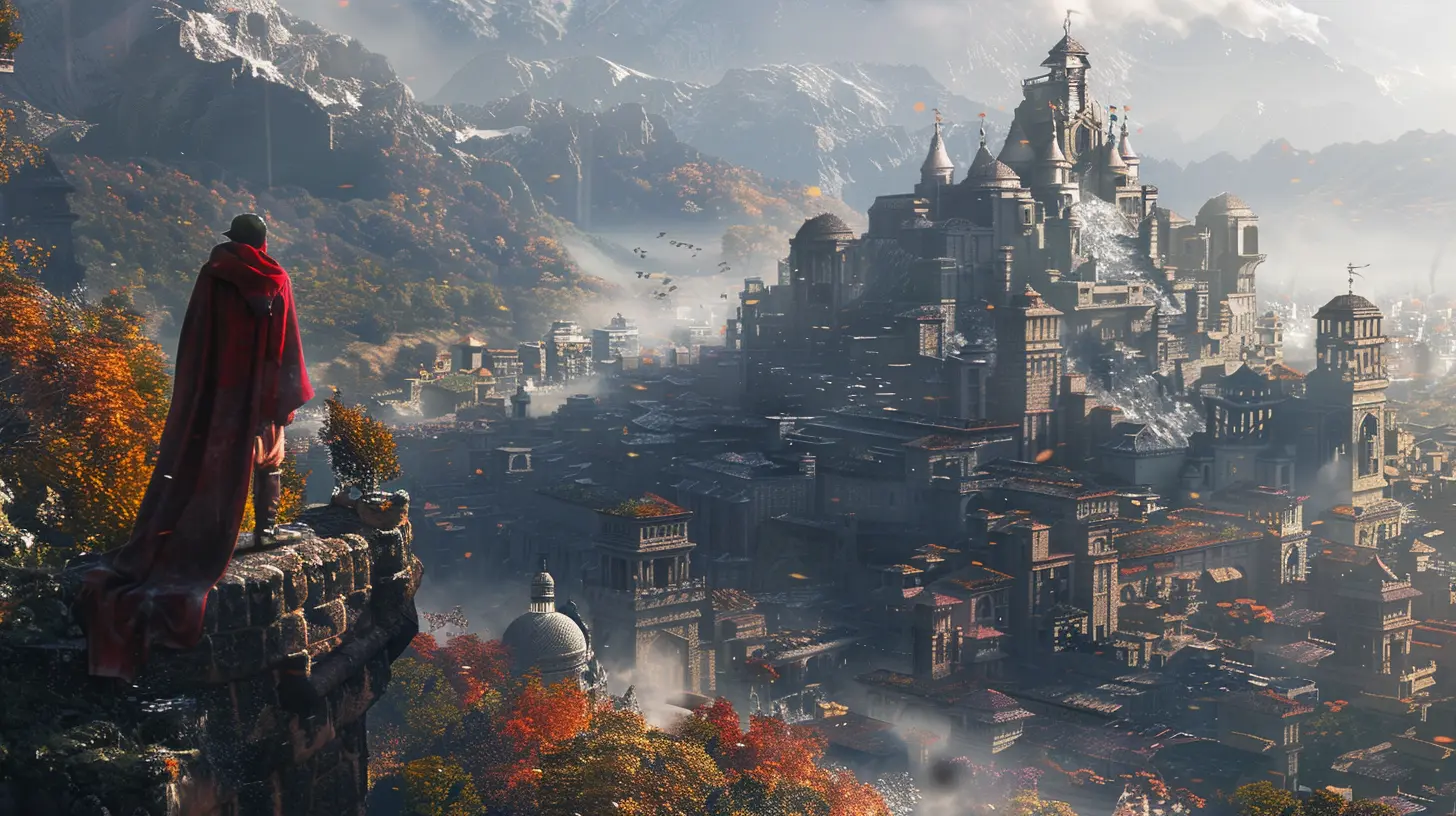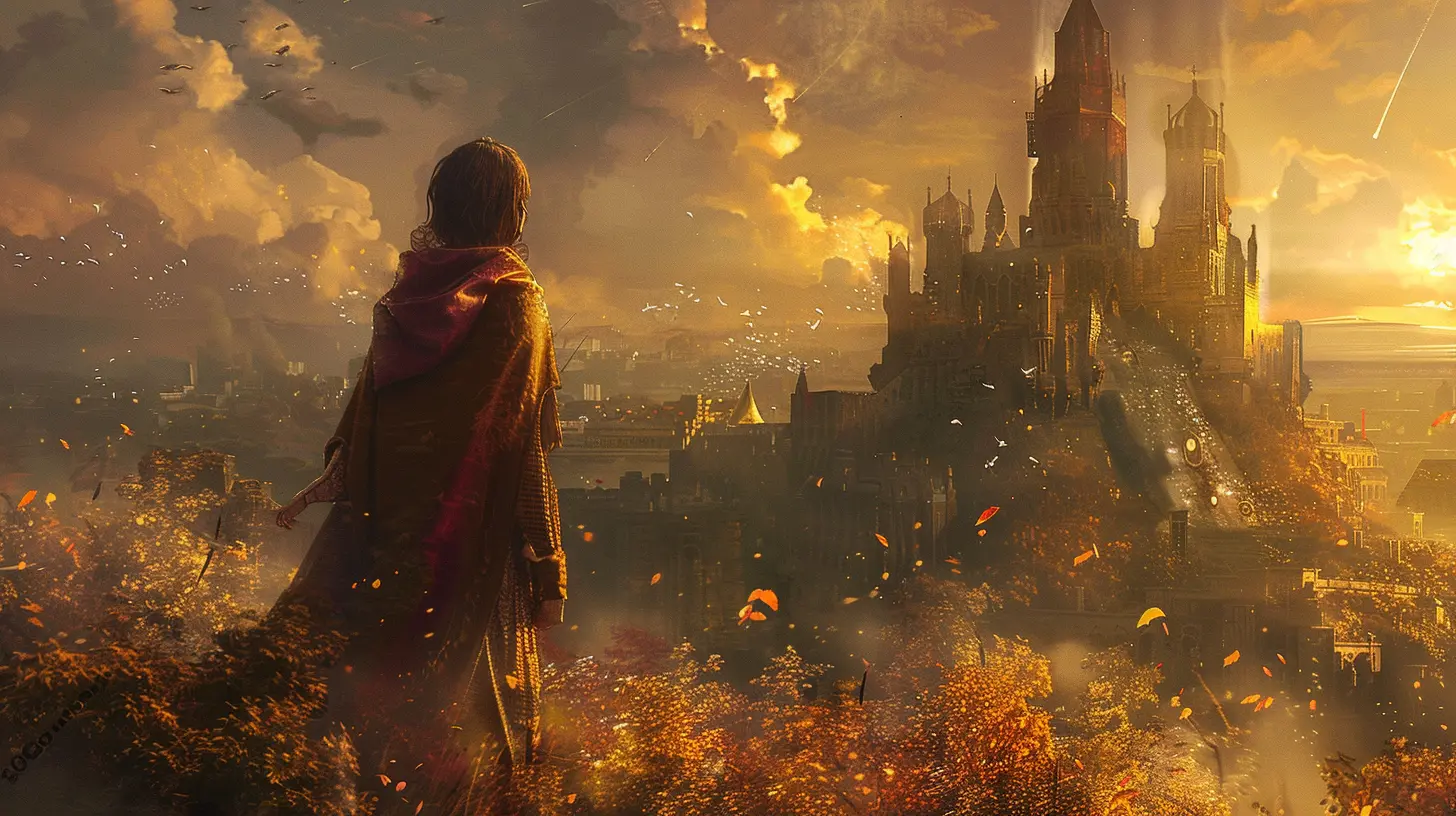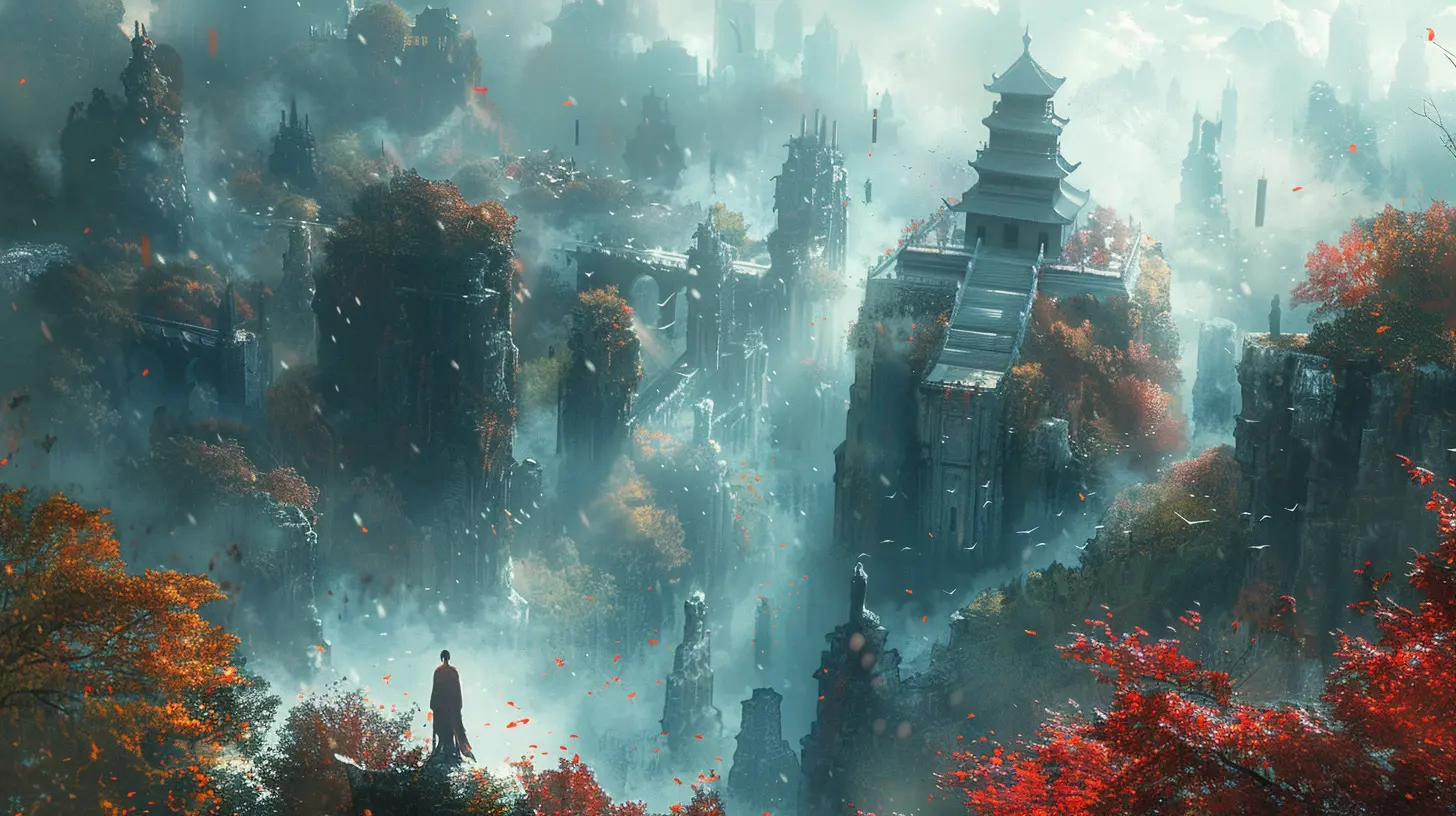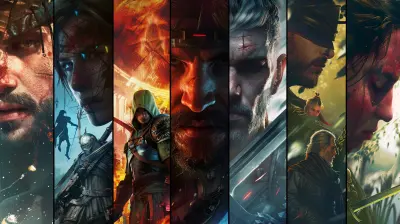Most Rewarding Games with Deep Progression Systems
22 August 2025
Ever sunk countless hours into a game, just to unlock that one ability, level, or trophy? Yup, you're not alone—and let's be real, there's something super satisfying about steady growth in games. It's the main reason we fall in love with titles that offer deep progression systems. These games keep us coming back, not just because they're fun, but because we're building something—our skills, our characters, our virtual legacy.
In this post, we're diving into the most rewarding games with deep progression systems. Whether you’re grinding XP in an epic sandbox RPG or slowly building out your dream deck in a CCG, progression is the name of the game. So grab a snack, sit back, and let's geek out over some of the most addictive, well-designed games that really understand the joy of progress.
Why Do We Love Deep Progression Systems?
Before we jump into the list, let’s talk about why deep progression systems are so effective. Ever heard of the term "dopamine loops"? That’s the little hit of happiness your brain gets when you level up or unlock something new. The more thoughtful the progression system is, the more satisfying those little hits become.Think of it like leveling up in real life—learning a new language, lifting heavier in the gym, or climbing the ranks at work. Games with solid progression mimic that same sense of accomplishment, but in a way more magical (and zero risk of sprained ankles).
1. The Witcher 3: Wild Hunt – A Masterclass in RPG Progression
Let’s kick things off with a modern classic. The Witcher 3 doesn’t just have great storytelling—it has one of the most layered progression systems in RPG history.What Makes It Rewarding?
- Skill Trees Galore: Whether you wanna go full swordmaster or brew the deadliest potions, the options are endless.- Gear Evolution: Upgrading Witcher gear isn’t just cosmetic—it makes a huge gameplay difference.
- Meaningful Choices: Even quest outcomes can change Geralt’s story radically.
Every step you take in Geralt's boots feels like it matters. It’s not just about stronger stats—it’s about becoming your version of the Witcher.
2. Dark Souls Series – Painfully Rewarding
Okay, this one’s for the masochists (in the best possible way). The Dark Souls games are notorious for their brutal difficulty—but that’s exactly what makes progression feel so rewarding.What Makes It Rewarding?
- High Stakes: Level-ups feel precious because they're hard-earned.- Build Variety: From glass-cannon mages to beefy tanks, there's a lot of room to experiment.
- Skill-Based Growth: You’re not just leveling your character—you’re leveling yourself.
There’s no hand-holding here. Every inch you progress feels like climbing Everest barefoot. Frustrating? Sure. Worth it? Absolutely.
3. Stardew Valley – The Farming Game That Feels Like Life
Don’t let the pixel art fool you. Stardew Valley has an incredibly deep (and surprisingly emotional) progression system.What Makes It Rewarding?
- Multiple Skill Paths: Farming, mining, fishing, combat—you name it.- Relationship Progression: You can literally go from stranger to spouse. That’s pretty deep.
- Slow-Burn Payoff: Your first in-game year might feel like a warm-up. By year three? You’re a tycoon.
It’s not just about growing crops—it’s about growing yourself (and maybe a few pigs, too).
4. Path of Exile – Complexity in the Best Way
Path of Exile often gets dubbed as the thinking person’s ARPG. Don’t be scared off by its massive skill tree; embrace it.What Makes It Rewarding?
- Insanely Deep Customization: Want to combine fire skills with vampiric lifesteal? Go nuts.- League Mechanics: Each season adds fresh layers to explore.
- Economy & Crafting: You can essentially run an in-game business.
This is a game where every choice matters, and experimentation is encouraged. It’s like building your dream hot rod—lots of trial, but incredible satisfaction when it roars to life.
5. Hades – Roguelike Perfection
Hades is proof that roguelikes can be deep AND emotionally engaging. It’s a game that rewards both patience and perseverance.What Makes It Rewarding?
- Persistent Progression: Even failed runs give you currency to upgrade.- Narrative Layers: The story advances organically based on how you play.
- Weapon Variety: Each weapon has multiple facets and play styles.
The beauty here is in the loop. Even when you "lose," you still win—kind of like life if it had gods and demons hanging around your living room.
6. Monster Hunter: World – Progress Through Mastery
Ever wanted to take down a beast the size of a building with just a sword and some grit? Welcome to Monster Hunter.What Makes It Rewarding?
- Gear-Based Progression: No XP farming—get better by slaying stronger monsters.- Learning Curves: Each monster is a unique challenge that demands focus.
- Crafting Systems: You literally wear your triumphs as armor.
It’s like hunting bosses for sport, then using their bones to make cooler gear. Sounds gruesome? Maybe. But deeply satisfying? Absolutely.
7. Runescape (Old School & Modern) – The OG Grinder
Ah, Runescape—a game many of us grew up with. Whether you're in the old school servers or the newer versions, the grind is real.What Makes It Rewarding?
- Skill-Based Progression: 20+ skills to level up, from herblore to woodcutting.- Player Economy: Market manipulation, trading, and crafting make it feel like Wall Street with dragons.
- Questing Variety: Some quests genuinely feel like mini RPGs on their own.
You don’t just play an adventurer—you become one, shaping your world with every click.
8. Civilization VI – Turn-Based Brain Candy
Okay, turn-based strategy might not scream "deep progression," but Civ VI says otherwise.What Makes It Rewarding?
- Tech & Civics Trees: So many paths, so little time.- Victory Conditions: Dominate, culture, science, diplomacy—choose your legacy.
- Leader Customization: Pair the right leader with the right playstyle and boom, world domination.
Every decision snowballs over hundreds of turns, and watching your empire grow from scattered tribes to space colonists? Chef’s kiss.
9. Final Fantasy XIV – MMO Heaven
If you’re looking for a game that does everything, Final Fantasy XIV hits the mark.What Makes It Rewarding?
- Multi-Class System: One character can level every job. No rerolls needed.- Crafting & Gathering: These are legit endgame paths, not side gigs.
- Narrative Progression: The story isn’t just filler—it’s award-winning.
It’s a buffet of RPG delight. Whether you're a raid junkie, casual fisher, or lore nerd, there's a place for you.
10. Slay the Spire – Deck It Out
One word: strategy. If you love card games and roguelikes, Slay the Spire is your holy grail.What Makes It Rewarding?
- Deck Building: Each run brings new synergies to discover.- Meta Progression: Unlock new characters, cards, and relics over time.
- Trial and Error: No run feels wasted—you always learn something.
It’s chess meets blackjack in a fantasy dungeon. One more run? Always.
Honorable Mentions
We couldn’t let this list end without tipping the hat to a few other favorites:- Elden Ring – Massive open-world, endless progression paths.
- Warframe – Movement, combat, and crafting that gets deeper the more you play.
- Diablo IV – Slick loot mechanics with intricate skill trees.
- Cyberpunk 2077 (Post-updates) – A progression system finally worthy of its world.
What Makes a Progression System Feel "Deep"?
So here’s the big question: What do all these games have in common that makes their progression systems so damn rewarding?It boils down to three key elements:
1. Meaningful Choices: Your decisions change how you play or experience the story.
2. Visible Growth: Whether it’s numbers going up or new abilities unlocked, you see and feel your progress.
3. Engagement Over Time: The more you play, the more layered the system becomes.
When a game nails these, it goes from "cool weekend distraction" to "how did it get to 4AM?"
Final Thoughts
So, there you have it—our list of the most rewarding games with deep progression systems. Whether you're looking to get lost in an epic RPG, grind through a skill tree, or slowly build the perfect deck, these games all offer something that taps deep into that part of our brain that loves improvement.Because at the end of the day? Games aren’t just about escape—they’re about growth. Sometimes it's pixels. Sometimes it's problem-solving. Sometimes it’s just learning how to roll-dodge like a boss. But no matter how you slice it, deep progression systems make the time you spend in-game feel meaningful.
So go ahead—pick one, dive in, and watch yourself evolve.
all images in this post were generated using AI tools
Category:
Top GamesAuthor:

Greyson McVeigh
Discussion
rate this article
1 comments
Zeal Schultz
If you’re still grinding in shallow games, it's time to level up your taste. Dive into these rewarding gems that actually respect your time and effort—because who wants to slog through mediocrity? Not you!
September 24, 2025 at 5:00 AM

Greyson McVeigh
I completely agree! It's essential to seek out games that value your time and offer meaningful progression—those gems truly elevate the gaming experience.


